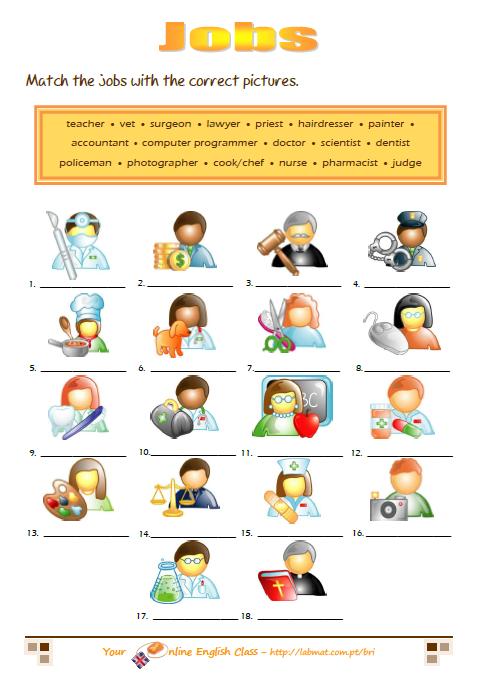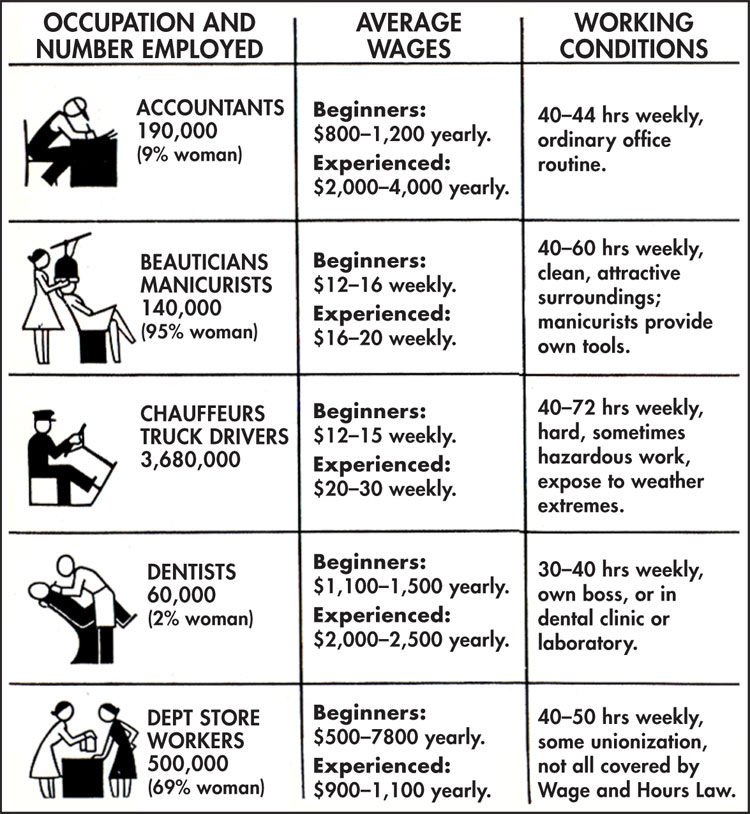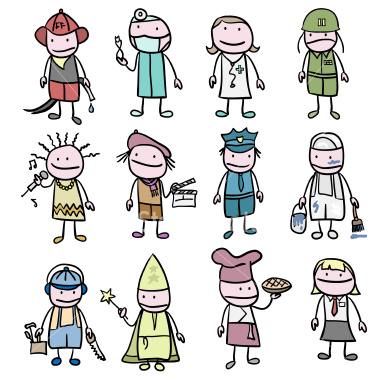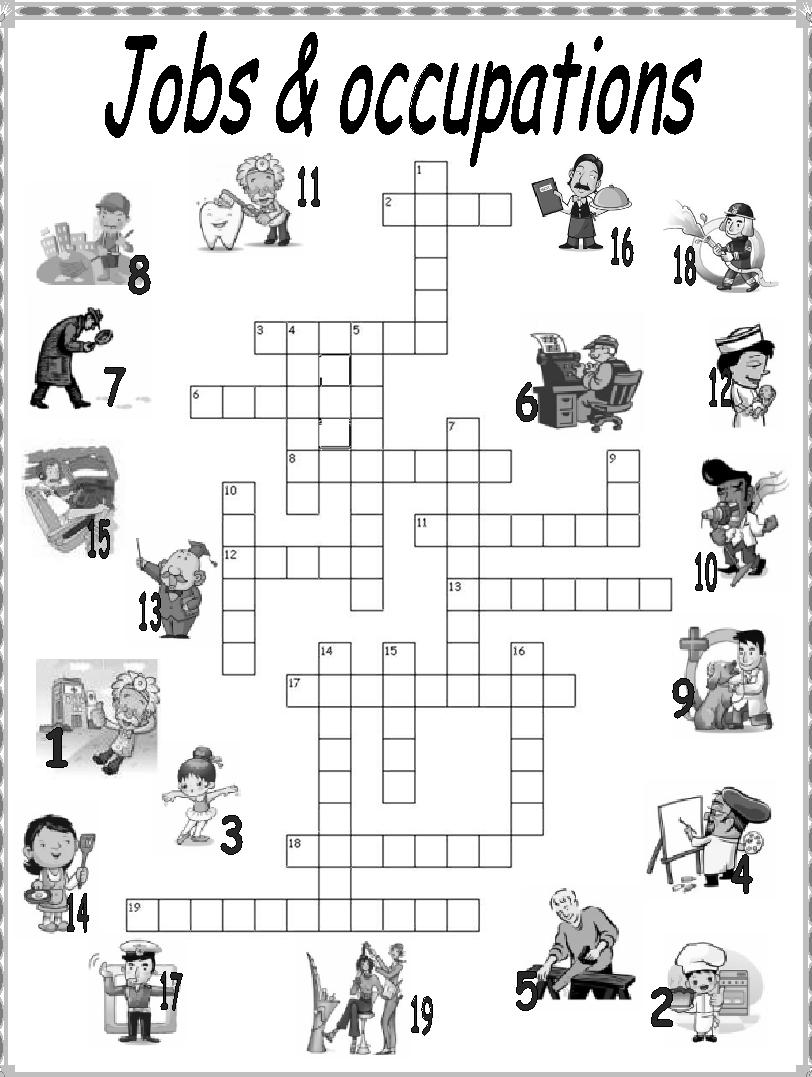|
Гіпермаркет Знань>>Англійська мова>>Англійська мова 11 клас. Повні уроки>> Історія України: Інтерактивні лінгвістичні ігри. Повні уроки The Jobs and Occupations (Професії). Цілі
Обладнаннякартки «Професії», стікери для гри, кросворд, роздатковий матеріал. Хід урокуОрганізаційний момент (2 хв).Вчитель: Hello! How are you? Take your seats, please. Who is absent? Do you know what the matter is? O.k., thank you. Write down the date to your copybooks. Мовленнєва зарядка (3 хв).Вчитель: What is the weather like today? Do you like it or not? (Учні відповідають). I see. And what did you hear from the weather forecasters? (Відповіді). Відповіді на питання вчителя за темою «Occupations» (10 хв).Вчитель: You see the word on the blackboard – “weather forecaster”. It was not by chance that I mentioned it in our conversation. Today we will speak on professions and occupations. It is our last lesson dedicated to this topic, and today I will see how good you were in learning it. First of all, please answer my questions using the lexical material of the last lessons.
Виконання тесту на підстановку (5 хв).Вчитель: And now I will check out how good you were at remembering the lexics at the lessons. You are to do the test about its periods. At the copies in front of you there are some blank spaces that you should fill in with the appropriate words. You have 5 minutes to accomplish the task! (Учні виконують тест).
Гра «Зобрази слово» (6 хв).Вчитель: We worked a lot, and that is the time to play a bit. The group will be divided into 2 teams. One person from each team receives a card with the ocuupation. He/she must show this word to the team so that they could define it. But do not cry out or make hints! For the right word the team receives a point. The time is limited to a minute. We start!
Гра «Співвідношення» (8 хв).Вчитель: We continue checking the lexical material of the topic while playing. The next game requires attention and a good memory. You must combine the pairs of the words by the principle “occupation – place”. For instance, the banker works at the bank. In turn the players of different teams name two areas. I show the cards – if they correspond each other, the team receives a point. If not, I stick the cards on their places. Come on!
Interesting for the curiousThe first recorded case of an actor performing took place in 534 BC (though the changes in calendar over the years make it hard to determine exactly) when the Greek performer Thespis stepped on to the stage at the Theatre Dionysus and became the first known person to speak words as a character in a play or story. Prior to Thespis' act, stories were only known to be told in song and dance and in third person narrative. In honour of Thespis, actors are commonly called Thespians. Theatrical legend to this day maintains that Thespis exists as a mischievous spirit, and disasters in the theatre are sometimes blamed on his ghostly intervention. Розгадування кросворду (5 хв).Вчитель: And the last activity for today is the topic-oriented cross-word. Your task is to find out all the words following my definitions and to explain the last word that will appear inside the cross-word. Good luck!
Завершення уроку (3 хв).Вчитель: I hope you enjoyed this lesson as I did. The results of our game are as follows: … You were amazing, and your marks for today are: … Thank you very much! Good-bye! Have a nice evening!
Список використаних джерел: 1. Урок на тему "The Jobs and Occupations" учителя Абраменко О.В., учитель вечірньої (змінної) середньої загальноосвітньої школи №18 м. Києва 2. en.wikipedia.or 3. www.eslprintables.com 4. www.eslflashcards.com 5. engblog.ru
Над уроком працювали Абраменко О.В. Любименко В.В. Поставить вопрос о современном образовании, выразить идею или решить назревшую проблему Вы можете на Образовательном форуме, где на международном уровне собирается образовательный совет свежей мысли и действия. Создав блог, Вы не только повысите свой статус, как компетентного преподавателя, а и сделаете весомый вклад в развитие школы будущего. Гильдия Лидеров Образования открывает двери для специалистов высшего ранга и приглашает к сотрудничеству в направлении создания лучших в мире школ. Предмети > Англійська мова > Англійська мова 11 клас |
Авторські права | Privacy Policy |FAQ | Партнери | Контакти | Кейс-уроки
© Автор системы образования 7W и Гипермаркета Знаний - Владимир Спиваковский
При использовании материалов ресурса
ссылка на edufuture.biz обязательна (для интернет ресурсов -
гиперссылка).
edufuture.biz 2008-© Все права защищены.
Сайт edufuture.biz является порталом, в котором не предусмотрены темы политики, наркомании, алкоголизма, курения и других "взрослых" тем.
Ждем Ваши замечания и предложения на email: 
По вопросам рекламы и спонсорства пишите на email: 













